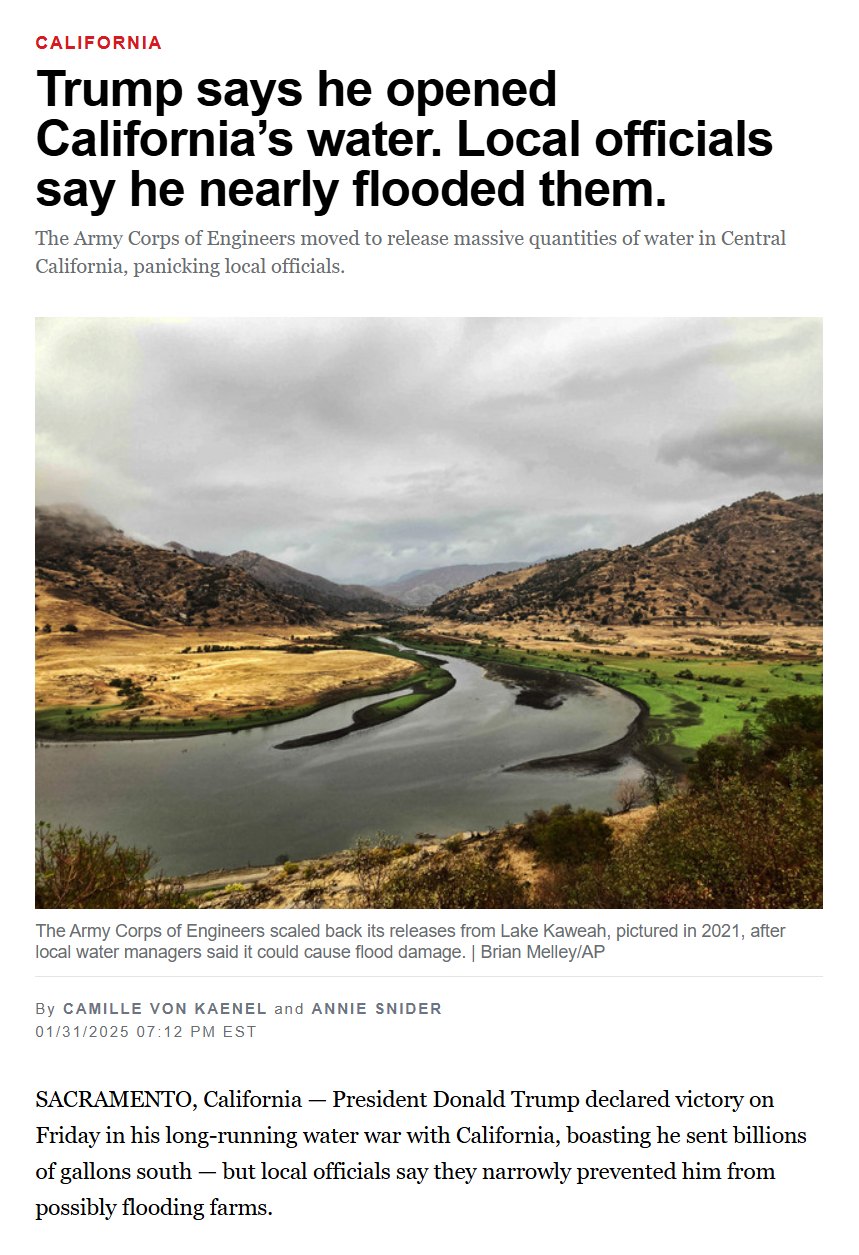If you kept your mouth shut these past four years, I’ll need you to keep doing that.
Category: via Facebook
Trump fires at least eight senior FBI executives, reviews thousands more.
Trump fires 30 federal prosecutors who worked on January 6 cases.


Trump released so much Northern California water into Southern California that he nearly drowned the haters and losers.
Trump administration compiling a list of FBI agents to fire.
Trump order to use 30K bed facility at Guantanamo Bay for criminal migrant detention.
US Senate blocks bill sanctioning ICC over Israeli arrest warrants.
In my day, we called them crazy, but these days, we call them him/her and he/she.
Trump order to prohibit chemical and surgical mutilation of children.
Trump administration offers roughly 2 million federal workers a buyout to resign.